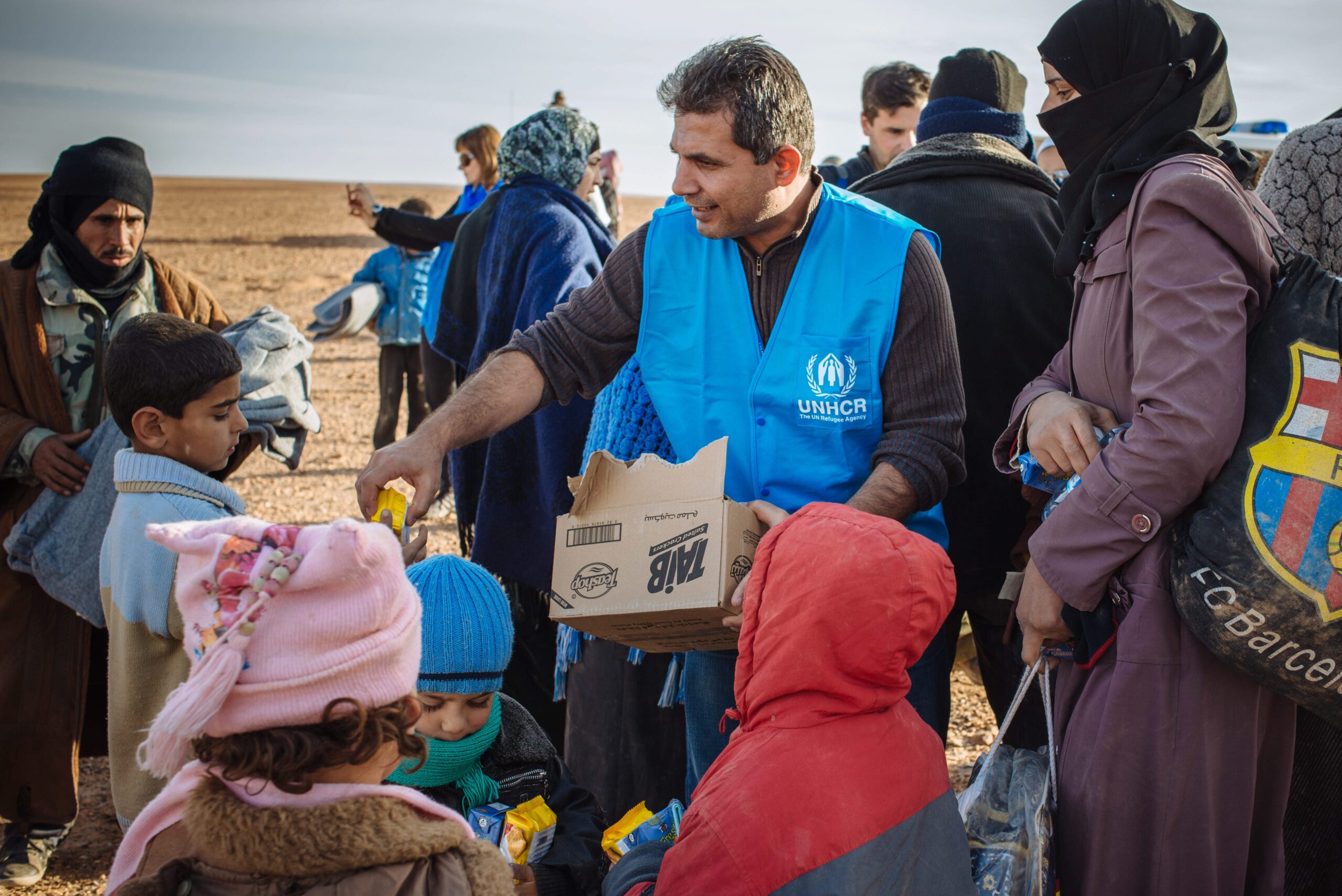
Promoting Peace, Protecting the Vulnerable & Ensuring Security through Humanitarian Efforts
Humanitarian efforts and security are essential for protecting human rights, fostering peace, and responding to the urgent needs of people affected by conflict, poverty, and environmental crises. At First Rights Global, we are dedicated to addressing humanitarian issues through policies that protect civilians, support displaced populations, and promote international cooperation in times of crisis. The global landscape increasingly demands a united approach to security and humanitarian challenges, as we seek to uphold human dignity, respect sovereignty, and extend aid across borders. In an interconnected world, safeguarding humanity requires collaboration that transcends national interests to embrace compassion, resilience, and hope.
Currently, millions around the world are affected by humanitarian crises. Conflicts in regions such as Ukraine, Syria, and Sudan have displaced families, left communities shattered, and destabilized entire regions. At the same time, natural disasters fueled by climate change worsen poverty and contribute to forced migration in vulnerable areas. According to the United Nations, over 100 million people have been forcibly displaced, a figure that represents the harsh reality of today’s humanitarian landscape. Civilians in conflict zones often endure violence, exploitation, and human rights abuses, while forced migration creates further instability. Nations like Norway and Canada have illustrated how humanitarian-focused foreign policies can prioritize human rights, contributing to both peace and global stability.
First Rights Global’s Humanitarian Efforts and Security framework centers on the protection of civilians, refugee support, and peaceful diplomacy. We advocate for policies that uphold human rights in conflict zones, protect vulnerable populations, and ensure that nations respect international humanitarian law. In partnership with international organizations and local entities, we strive to deliver aid to those most in need, addressing immediate challenges while also tackling the root causes of insecurity. By prioritizing compassion-driven solutions, we work to create a world where people can live safely, rebuild communities, and look forward to a peaceful future.
Civilians suffer immensely in armed conflicts, facing violence, displacement, and loss of resources. First Rights Global supports policies that prioritize civilian protection, including prohibitions against targeting civilian zones and ensuring humanitarian aid access. Drawing on the Geneva Conventions, which set standards for non-combatant safety, we advocate for international agreements that protect civilians and build stable communities.
Forced displacement impacts millions worldwide, leaving refugees vulnerable and in need of safety and support. First Rights Global promotes policies for humane asylum, essential services, and comprehensive resettlement programs, inspired by Canada’s model for refugee support. By advocating for refugee rights, we help displaced individuals rebuild and restore human dignity.
Human rights abuses often escalate in conflict zones, with civilians facing exploitation and violence. First Rights Global supports initiatives to monitor, document, and respond to these abuses, inspired by the International Criminal Court’s work in prosecuting war crimes. Protecting human rights in these areas reinforces global security and justice.
Women in conflict zones face heightened risks of violence and exploitation. First Rights Global advocates for protections that prevent gender-based violence and ensure access to essential healthcare. Guided by U.N. Security Council Resolution 1325, we prioritize women’s safety and empowerment, critical for community resilience.
Children are particularly vulnerable in war, often exploited as soldiers or laborers. First Rights Global supports policies that prevent child recruitment and provide rehabilitation for affected children, based on the Paris Principles. Protecting children in these settings is essential for fostering future stability.
Promoting peace and diplomacy prevents conflicts and fosters long-term security. First Rights Global backs diplomatic conflict resolutions and community reconciliation efforts, following Norway’s successful peace facilitation model. Diplomacy saves lives and builds pathways toward enduring peace.
Effective humanitarian aid relies on international coordination. First Rights Global advocates for policies that improve cooperation between governments, NGOs, and local groups, inspired by OCHA’s coordinated approach. Collaborative efforts ensure aid reaches those in need and enhances crisis resilience.
Conflict settings often lead to increased trafficking and exploitation. First Rights Global supports anti-trafficking programs, including victim support and survivor resources, drawing from the U.S. Trafficking Victims Protection Act. Addressing trafficking protects the most vulnerable during crises.
Arms proliferation worsens violence and civilian harm. First Rights Global supports restrictions on arms sales to conflict areas and backs the U.N. Arms Trade Treaty’s framework. By promoting arms control, we aim to reduce violence and safeguard civilians in war-torn regions.
Climate change drives forced migration, especially as natural disasters and rising sea levels increase. First Rights Global advocates for migration policies that support climate refugees, inspired by New Zealand’s climate policies. Recognizing and supporting climate-induced migrants upholds global responsibility.
